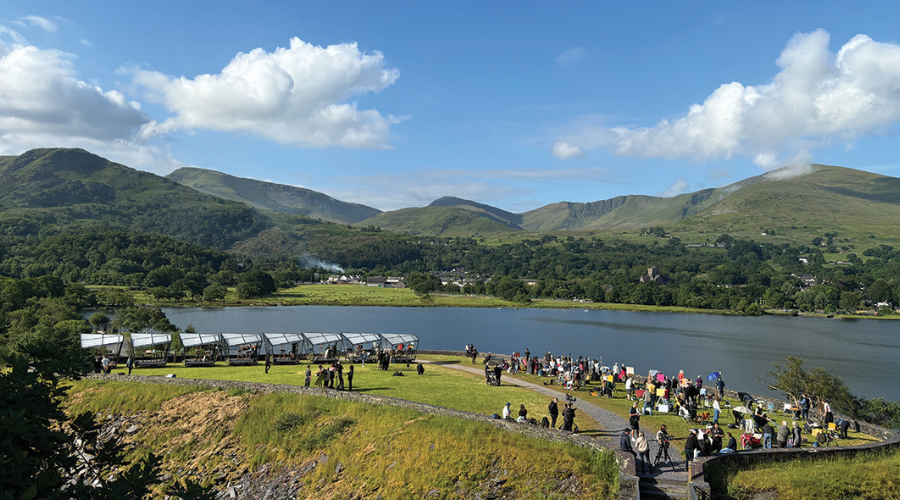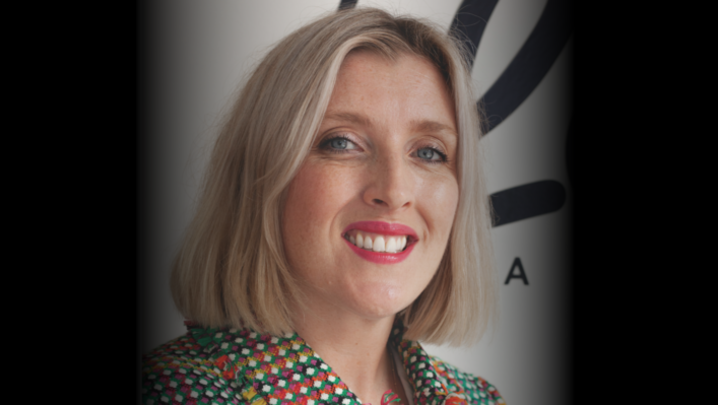Stuart Prebble cut his teeth on Granada’s vintage current affairs show World in Action before becoming ITV’s Controller of Factual Programmes and then the broadcaster’s CEO. He has launched two indies, Liberty Bell, the company behind Grumpy Old Men and Women, and Storyvault Films, which produces Sky Arts’ hugely successful Portrait Artist of the Year and sister show Landscape Artist of the Year.
Tell us about producing Portrait (and Landscape) Artist of the Year over the past decade…
They are the most joyous shows I’ve been involved in. Artists tend to be really nice people, and we don’t show, as others do, the humiliation of a competitor packing their bags and leaving the programme, accompanied by sad music. There are scores of artists who [if not for the show]would still be amateur and are now professional – television often gets a bad rap, but we feel that to have achieved something like that is fantastic.
What are the secrets of the shows’ success?
Producing a long-running show means you can develop a team. We’ve had the same judges from day one, and – until Joan [Bakewell] retired recently – only one change of presenter. Storytelling is hugely important: you need to get the viewer involved in artists and rooting for them. It’s also new every time. I’ve sat and watched hundreds of pictures painted and it’s never dull; getting in the heads of the artists is endlessly fascinating.
Did you always want to work in TV?
I always wanted to be a journalist. At Newcastle University, I was news editor of the student newspaper, then editor. I applied to the BBC’s news training scheme and was incredibly lucky to get in. That was 50 years ago last month.
What were the first programmes you worked on?
I was at BBC radio news and then television news for five years, including a period as an onscreen reporter. I worked out that I preferred current affairs, which is why I set my sights on World in Action and applied to Granada. I went there as a local programmes presenter and producer for a couple of years before they put me on the World in Action team. It was a fantastic privilege.
You moved on to commissioning…
Producing is a vocation but it’s a bit like teaching: if you’re a good teacher, you get asked to become deputy head, then head – all of a sudden you’re running the school and not teaching. That’s what happened to me; after World in Action, I got the chance to become Head of Factual Programmes at Granada, then Controller of Factual Programmes for ITV. Nobody says no to that, but increasingly I was a suit. So when it came to an end, I went back to working as a hands-on producer. It was so liberating. For the past 20-odd years as an independent producer, I’ve been sustained by curiosity – you hear something and you think: “I’d like to know more about that”. I’ve never had a bad day.
Is it harder now to make current affairs series?
When I left ITV and started my first indie, Liberty Bell, in 2002, I didn’t really want to do current affairs, partly because I’d had enough of being up at 3am in the cutting room, making changes because the situation had changed. And, if you’re trying to run a business, current affairs is likely to have a limited life for distribution. So, since I’ve been independent, I’ve always pursued a wider range of general interest stuff, sometimes serious like The Alastair Campbell Diaries for BBC Two. We’ve moved more towards the arts in recent years; we made The Book Show for Sky Arts for many years, and latterly Sky Arts Book Club.
What advice have you for someone wanting to work in factual TV?
Television is tough but we employ loads of incredibly impressive young people. If you get into our company as a runner, and you’re any good, you’ll come back the next year as a researcher, then assistant producer, and a couple years after that as a producer. That route still works. You’ve got to roll with the punches and stick with it. When I started as an independent producer, there were editors who commissioned me because it was easier to [take me on] than not. I was beating their bloody doors down with ideas!
Is the industry open to all?
Factual programme budgets don’t [allow for] realistic entry-level salaries for people who don’t have another way of supporting themselves. We are making some progress as an industry but we will not solve the scandalous issue we have with diversity unless broadcasters enable companies like ours to hire and bring on people who are not subsidised by mum and dad.
What programmes are you most proud of?
World in Action, the programmes we made with Alastair Campbell after he left Downing Street, and Grumpy Old Men and Women. For pure joy, though, it has to be Portrait (and Landscape) Artist of the Year.
Which factual programme-makers do you admire?
Everything by my old friend Peter Kosminsky, factual and non-factual. John Ware’s reports for Panorama; like me, John was a producer on World in Action. Another contemporary of mine was Paul Greengrass. What a career – he went from World in Action to making feature films. There are so many people I’ve admired and worked with over the years; Melvyn Bragg continues to be an absolute hero of mine. At Channel 4, another World in Action alumnus, Dorothy Byrne, carried the flag for the kind of programmes nobody else would commission.
Is it ever tempting to sell up to a super-indie?
I didn’t ever want to sit down and present a profit forecast to an investor. I’ve always tried my absolute best to get my ideas commissioned; I didn’t want the additional pressure of having to explain to a finance director in a suit why I couldn’t get my idea away. You are either independent and you swim or sink, or you’re answerable to someone else. At heart, I’m still a TV producer – I’m 73, and sitting here going through transcripts of our latest show.
Is the future bright for factual producers like Storyvault?
The time we spend trying to get the money and find broadcasters versus actually making a show can be disenchanting. Budgets are tight but we are fortunate that Sky Arts allows us to make shows we are proud of. It’s harder to get new shows greenlit, but there are more outlets for a programme now. I wouldn’t want to make a four-parter on Robbie Williams or six hours on Harry and Meghan, but people are producing them and plenty of other shows too. I’m optimistic. If you want to make a show badly enough, you’ll find a way to make it.
Is there a programme you’d still love to make?
I have an idea for a gameshow tucked away. It’s probably never going to get made, but if you could magic a series, that would be it.
Stuart Prebble was interviewed by Matthew Bell. His memoir of 50 years in television, Still Grumpy After All These Years, is available on Amazon.



